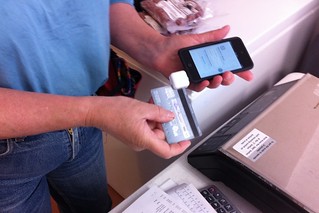 Whether you’re getting one for the first time or already learning how to manage debt, credit cards can be extremely complicated. If the recession has taught Americans anything, it’s that credit companies, banks, and even department stores are not their friends, and most cards are designed to gouge you for annual fees, interest, late fees, and more. You have to be pretty smart to stay on top of it all. Still, it’s important to have credit cards if you want to establish credit, rent a car, or simply secure funds for a rainy day. Increasing your savings is one way to be a responsible credit card owner. But there are plenty of other ways to avoid wrong turns and massive debt, as long as you follow some simple rules.
Whether you’re getting one for the first time or already learning how to manage debt, credit cards can be extremely complicated. If the recession has taught Americans anything, it’s that credit companies, banks, and even department stores are not their friends, and most cards are designed to gouge you for annual fees, interest, late fees, and more. You have to be pretty smart to stay on top of it all. Still, it’s important to have credit cards if you want to establish credit, rent a car, or simply secure funds for a rainy day. Increasing your savings is one way to be a responsible credit card owner. But there are plenty of other ways to avoid wrong turns and massive debt, as long as you follow some simple rules.
1. Don’t Make it Easy to Steal from You
Over 25 percent of identity theft is committed by friends and family, and even if you think it’s crazy that someone you’re close to could do such a thing, it’s also very possible they could make charges you don’t know about. Letting your son or daughter loose with a card is almost surely going to cost you. As many American sitcoms have taught, kids simply don’t understand the way credit works, and they won’t be too broken up about buying things on the spot that they seemingly don’t have to pay for. Plenty of credit card users don’t realize how sensitive their card information really is, and they’ll hand over their card to waiters or give out their card number over the phone without a second thought.
2. Crazy Fees and How to Avoid Them
Your credit card and your debit card are very different things. One of them isn’t supposed to be brought out on every occasion. While you’re at it, stop using your credit card at the ATM. Cash advances can be murder on your personal finances. With zero grace period, you’ll be charged a high percentage from the moment the cash is in your hand. Avoid further credit card fees by paying your bill on time – that way you’ll avoid $30 or more every month and keep your credit in good standing. The best way to avoid credit fees is to have a card that fits your lifestyle, because there are all kinds of offers tailored to certain kinds of consumers.
3. You Must Pay More to Owe Less
Why do you think the average credit card debt per household in America is greater than $15,000? APRs are so high, using your credit card for anything but dire emergencies can make a permanent dent in your credit if you don’t fully commit to paying it off as soon as possible. That means taking the extra $50 you would spend on a night out and applying it to your debt instead. You should also avoid maxing out your credit cards. You should make sure and use all your cards periodically, because if a lender closes your account for inactivity, that can also be bad for your credit. It’s a precarious world out there, and you should never be afraid to question what you’re getting into or consult a financial adviser for help.
Karen Smith is a blogger who writes for the debt settlement pros and cons a good sites where you can find the best way in settle a debt for your finances.
edralyn
Latest posts by edralyn (see all)
- Credit Card Mistakes that can Cause You Problems - December 8, 2013
- Find Out the Easiest Way to Get Bail Bond New Jersey Based - November 1, 2013
- The Digital War: Why Cyber terrorism is National Security’s Biggest Threat - October 16, 2013
